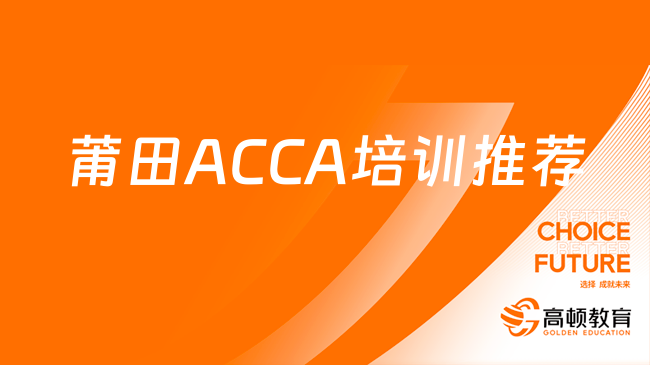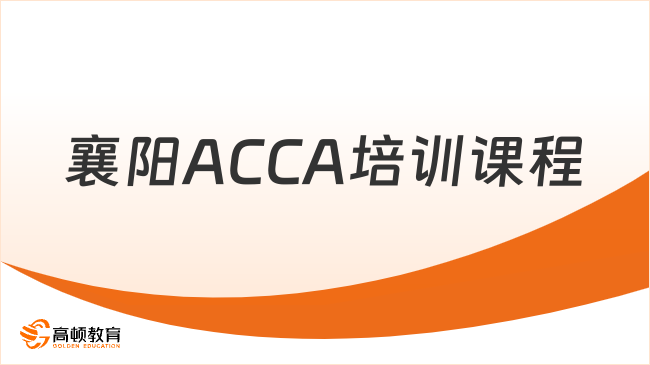ACCA考试《审计与认证业务F8》知识辅导6
来源:
高顿网校
2015-03-19
理想是力量的泉源、智慧的摇篮、冲锋的战旗、斩棘的利剑。高顿网校为广大学员提供2015年ACCA考试网络课程,为您的理想插上翅膀,让您2015年考试顺利通过!免费听课》
GOING CONCERN
It is essential that candidates preparing for the Paper F8 exam understand the respective responsibilities of auditors and management regarding going concern. This article discusses these responsibilities, as well as the indicators that could highlight where an entity may not be a going concern, and the reporting aspects relating to going concern
Candidates attempting Paper F8, Audit and Assurance will need to have a sound understanding of the concept of going concern. Among other syllabus requirements, candidates must ensure they are aware of the respective responsibilities of auditors and management regarding going concern. The provisions in ISA 570, Going Concern deal with the auditor’s responsibilities in relation to management’s use of the going concern assumption in the preparation of the financial statements.
THE CONCEPT OF GOING CONCERN
An entity prepares financial statements on a going concern basis when, under the going concern assumption, the entity is viewed as continuing in business for the foreseeable future. The term ‘foreseeable future’ is not defined within ISA 570, but IAS 1, Presentation of Financial Statements deems the foreseeable future to be a period of 12 months from the entity’s reporting date.
The concept of going concern is an underlying assumption in the preparation of financial statements, hence it is assumed that the entity has neither the intention, nor the need, to liquidate or curtail materially the scale of its operations. If management conclude that the entity has no alternative but to liquidate or curtail materially the scale of its operations, the going concern basis cannot be used and the financial statements must be prepared on a different basis (such as the ‘break-up’ basis)。
MANAGEMENT’S RESPONSIBILITY
The concept of going concern is particularly relevant in times of economic difficulties and in some situations management may determine that a profitable company may not be a going concern, for example because of significant cash flow difficulties. It is important that candidates understand that it is the responsibility of management to make an assessment of whether the going concern presumption is appropriate, or not, when they are preparing the financial statements. In order to conclude as to whether, or not, an entity is able to continue in business for the foreseeable future, management will have to make judgments on various uncertain future outcomes of events or conditions. ISA 570 outlines three factors that are relevant and which management must take into consideration when determining whether, or not, an entity can prepare the financial statements on the going concern basis:
· The degree of uncertainty associated with the outcome of an event or condition increases significantly the further into the future an event or condition or the outcome occurs. For that reason, most financial reporting frameworks that require
an explicit management assessment specify the period for which management is required to take into account all available information.
· The size and complexity of the entity, the nature and condition of its business and the degree to which it is affected by external factors affect the judgment regarding the outcome of events or conditions.
· Any judgment about the future is based on information available at the time at which the judgment is made. Subsequent events may result in outcomes that are inconsistent with judgments that were reasonable at the time they were made. (1)
Question 5(b) in the June 2010 exam (Medimade Co), for eight marks, required candidates to: ‘Identify any potential indicators that the company is not a going concern and describe why these could impact upon the ability of the company to continue trading on a going concern basis.’
The scenario presented to candidates gave an abundance of warning signals that management’s assessment of going concern may not be appropriate in the circumstances. These warnings signals were:
· a growth in the level of competition Medimade Co faces
· a significant decline in demand for its products
· failing to re-invest in new product development
· difficulties in recruiting suitably trained scientific staff
· an inability to agree suitable financing terms with the bank
· investing $2m in new plant and machinery using an overdraft (a short-term borrowing facility which carries higher rates of interest)
· delayed payments to suppliers with some suppliers withdrawing credit and insisting on cash on delivery, which further impacts the overdrawn balance at the bank
· cash flow forecast showing a significantly worsening position within the next 12 months.
In the Paper F8 exam, candidates must be able to identify factors that may have an impact on an entity’s ability to continue as a going concern. The factors present in Question 5 of the June 2010 exam are not exhaustive and there are many other indicators that an entity may not be a going concern, such as:
· inability to pay dividends to shareholders
· major losses or cash flow difficulties that have arisen since the reporting date
· adverse key financial ratios
· indications of withdrawal of financial support from the bank or other financial institutions
· negative operating cash flows
· major debt repayments falling due which the entity will not be able to meet
· pending legal or regulatory proceedings against the entity that may, if successful, result in claims that are unlikely to be satisfied
If there are any material uncertainties relating to the going concern assumption, then management must make adequate going concern disclosures in the financial statements.
AUDITOR’S RESPONSIBILITIES
As mentioned earlier, it is not the auditor’s responsibility to determine whether, or not, an entity can prepare its financial statements under the going concern presumption; this is the responsibility of management. The auditor’s responsibility under ISA 570 is to obtain sufficient appropriate audit evidence about the appropriateness of management’s use of the going concern assumption in the preparation of the financial statements, and to conclude whether there is a material uncertainty about the entity’s ability to continue as a going concern.
In the June 2010 exam, question 5(c) required candidates to: ‘Explain the audit procedures that the auditor of Medimade should perform in assessing whether or not the company is a going concern.’
When faced with such a requirement, candidates must be careful not to produce a list of generic audit procedures, but instead identify and highlight the factors from the scenario that may call into question the entity’s ability to continue as a going concern. Once these factors have been identified, candidates should then be able to think about the procedures the auditor may adopt to establish whether the factors mean the going concern presumption is appropriate in the circumstances, or not.
In Question 5(c) of the June 2010 exam, if candidates simply wrote ‘Obtain confirmation from the bank that the overdraft facility will be renewed’ this will generate no marks for two reasons:
· The scenario clearly says that Medimade’s bankers will not make a decision on the overdraft facility until AFTER the audit report is completed.
· A bank, or other financial institution, is not going to give this sort of information directly to the auditor.
Candidates should generate the audit procedures specifically from information contained in the scenario to demonstrate application skills, and candidates should refer to the model answer in the June 2010 exam to make sure the procedures they have generated are specific to the scenario.
Many candidates fall into the trap of relying on ‘discussions with management/directors’ and ‘obtaining a written representation’。 Candidates must appreciate that while discussion/inquiry is a valid audit procedure under ISA 500, Audit Evidence, such a procedure is always used in addition to other procedures – in other words, inquiry on its own will not generate sufficient appropriate audit evidence. Similarly ISA 580, Written Representations recognises that while written representations
do provide necessary audit evidence, they do not provide sufficient appropriate audit evidence on their own about any of the matters with which they deal.
Other procedures that the auditor may adopt to establish whether the use of the going concern presumption is appropriate in an entity’s particular circumstances could be:
· Reading minutes of shareholders’ meetings to identify any current, or potential, cash flow difficulties.
· Liaising with the entity’s legal advisers concerning any ongoing litigation or future litigation and assessing the reasonableness of management’s assessments of their outcome and the estimate of their financial implications.
· Evaluating the entity’s plans to deal with unfulfilled customer orders.
· Obtaining and reviewing reports of regulatory actions.
小编寄语:成功与不成功之间有时距离很短——只要后者再向前几步。
| ACCA网络课程 | 课程专业名称 | 讲师 | 试听 |
 85%的人正在学习该课程 85%的人正在学习该课程 | ACCA 全维度网课体验课程 实景课堂与独立录制 覆盖所有知识点,根据学习计划推进学习进度 | 高顿名师 |  |
 70%的人正在学习该课程 70%的人正在学习该课程 | ACCA网课全科卡(8.2折) 为零基础刚开始学习ACCA的学员特别定制 | 高顿名师 |  |
精彩推荐:
版权声明:本条内容自发布之日起,有效期为一个月。凡本网站注明“来源高顿教育”或“来源高顿网校”或“来源高顿”的所有作品,均为本网站合法拥有版权的作品,未经本网站授权,任何媒体、网站、个人不得转载、链接、转帖或以其他方式使用。
经本网站合法授权的,应在授权范围内使用,且使用时必须注明“来源高顿教育”或“来源高顿网校”或“来源高顿”,并不得对作品中出现的“高顿”字样进行删减、替换等。违反上述声明者,本网站将依法追究其法律责任。
本网站的部分资料转载自互联网,均尽力标明作者和出处。本网站转载的目的在于传递更多信息,并不意味着赞同其观点或证实其描述,本网站不对其真实性负责。
如您认为本网站刊载作品涉及版权等问题,请与本网站联系(邮箱fawu@gaodun.com,电话:021-31587497),本网站核实确认后会尽快予以处理。
点一下领资料
【整理版】ACCA各科目历年真题
真题高频考点,刷题全靠这份资料
下载合集
acca全科学习思维导图
梳理核心考点,一图看懂全部章节
下载合集
2023年acca考纲解析
覆盖科目重难点,备考按照计划走
下载合集
acca备考 热门问题解答
- acca考试怎么搭配科目?
-
建议优先选择相关联的科目进行搭配报考,这样可以提高备考效率,减轻备考压力,1、F1-F4:为随时机考科目,难度较低,这里可以自行随意选择考试顺序。2、F5-F9:如果你的工作的和财务会计或者审计有关、或者你比较擅长财务和审计的话,推荐先考F7和F8。你可以选择一起考ACCA考试科目F7和F8或者先考F7(8)再考F8(7),这就要取决你一次想考几门。3、P阶段:选修科目中,建议企业首选AFM!第二部分科目进行选择,如果AA和SBR掌握学生更好,可以通过选择AAA,如果SBL掌握的好,可以自己选择APM。
- acca一共几门几年考完?
-
acca一共有15门考试科目,其中有必修科目和选修科目,考生需要考完13门科目才能拿下证书。
- acca一年考几次?
-
acca一年有4次考试,分别是3月、6月、9月和12月,分季机考科目是采取的这类四个考季的模式,而随时机考则是没有这方面的时间规定限制,可以随报随考。
- acca的含金量如何?
-
ACCA证书的含金量是比较高的,从就业、能力提升、全球认可等角度来说,都是比较有优势的证书,其含金量主要表现在以下几个方面:1、国际化,认可度高;2、岗位多,就业前景好;3、缺口大,人才激励。
严选名师 全流程服务
其他人还搜了
热门推荐
-
盐城ACCA培训机构,高顿ACCA要不要报? 2023-07-04
-
绵阳ACCA培训课程,高顿ACCA值得报吗? 2023-07-04
-
莆田ACCA培训推荐,高顿ACCA要不要报? 2023-07-03
-
昆山ACCA培训班,高顿ACCA培训介绍? 2023-07-03
-
会计专业有哪些证书大学可以考?证书报考条件及获取指南一览! 2023-07-03
-
会计专业acca方向是学什么的? 2023-07-03
-
银川ACCA培训机构,高顿ACCA有哪些优势? 2023-07-03
-
襄阳ACCA培训课程,高顿ACCA值得报吗? 2023-07-03
-
南通ACCA培训介绍,高顿ACCA课程如何? 2023-07-03
-
鞍山ACCA培训推荐,高顿ACCA推荐吗? 2023-07-03
-
西宁ACCA培训推荐,高顿ACCA有哪些优势? 2023-06-26
-
江门ACCA培训机构,高顿ACCA好不好? 2023-06-26
-
赣州ACCA培训课程,高顿ACCA推荐吗? 2023-06-26
-
廊坊ACCA培训班,高顿ACCA值得报名吗? 2023-06-25
-
大同ACCA培训介绍,高顿ACCA课程如何? 2023-06-25
-
大同ACCA培训介绍,高顿ACCA课程如何? 2023-06-25
-
保定ACCA培训推荐,高顿ACCA培训介绍? 2023-06-25
-
珠海ACCA培训推荐,高顿ACCA要不要报? 2023-06-25
-
邯郸ACCA培训介绍,高顿ACCA怎么样? 2023-06-25
-
包头ACCA培训课程,高顿ACCA课程如何? 2023-06-25
-
烟台ACCA培训推荐,高顿ACCA课程怎么样? 2023-06-25
-
洛阳ACCA培训班,高顿ACCA值得报名吗? 2023-06-25
-
徐州ACCA培训推荐,高顿ACCA怎么样? 2023-06-21
-
唐山ACCA培训介绍,高顿ACCA要不要报? 2023-06-21
-
绍兴ACCA培训课程,高顿ACCA推荐吗? 2023-06-21
-
柳州ACCA培训班,高顿ACCA好不好? 2023-06-21
-
呼和浩特ACCA培训机构,高顿ACCA培训介绍? 2023-06-21
-
海口ACCA培训推荐,高顿ACCA怎么样? 2023-06-21
-
温州ACCA培训课程,高顿ACCA怎么样? 2023-06-21
-
淄博ACCA培训机构,高顿ACCA好不好? 2023-06-21
 更多服务
更多服务
























